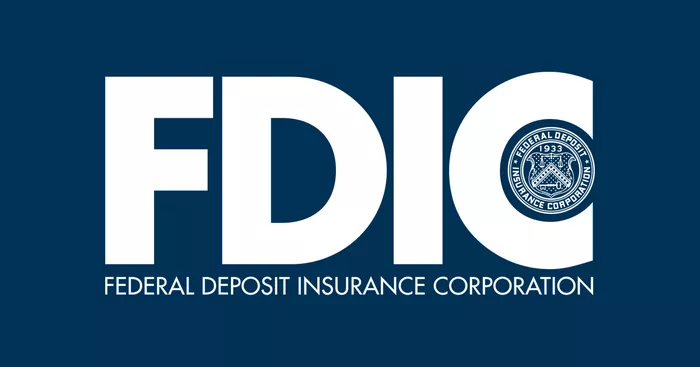Certificates of Deposit (CDs) are time deposits offered by banks and credit unions that pay interest over a specified term. These financial instruments are attractive to conservative investors due to their relative safety and predictable returns. When purchasing a CD, you agree to leave a certain amount of money with the bank for a set period, ranging from a few months to several years, in exchange for periodic interest payments. Upon maturity, you receive the original deposit along with any accrued interest.
The Federal Deposit Insurance Corporation (FDIC) is an independent agency created by the U.S. Congress to maintain stability and public confidence in the nation’s financial system. One of its primary roles is to insure deposits at FDIC-insured banks and savings institutions, providing a safety net for depositors in case of bank failures. FDIC insurance is crucial for protecting depositors’ money, ensuring that even if a bank fails, the insured deposits are safe up to the coverage limit.
Are CDs FDIC Insured?
Yes, Certificates of Deposit (CDs) are FDIC insured. When you invest in a CD through an FDIC-insured bank or savings institution, your deposit is protected up to the FDIC insurance limit. The FDIC’s role in insuring deposits is fundamental to maintaining depositor confidence and financial stability. If an FDIC-insured bank fails, the FDIC steps in to protect depositors by covering their losses up to the insured limit, ensuring that individuals do not lose their savings due to bank insolvency.
Understanding FDIC Coverage Limits
FDIC insurance, while robust, has specific limitations. The standard insurance amount is $250,000 per depositor, per insured bank, for each account ownership category. This means that an individual’s deposits at one bank are insured up to $250,000 across all account types within the same ownership category. Here’s a breakdown of the coverage limits:
Single Accounts: Deposits owned by one person are insured up to $250,000.
Joint Accounts: Each co-owner’s share of joint accounts is insured up to $250,000 per co-owner.
Retirement Accounts: Certain retirement accounts, such as IRAs, are insured up to $250,000 per owner.
Revocable Trust Accounts: Each named beneficiary’s interest is insured up to $250,000.
Corporation, Partnership, and Unincorporated Association Accounts: These are insured up to $250,000 per entity.
It’s essential to understand these limits to maximize your FDIC insurance coverage effectively.
See also: Business Assets Insurance
Examples of FDIC Coverage for CDs
Let’s consider a few scenarios to illustrate how FDIC coverage applies to different CD ownership types:
Single Account Example
John Doe has the following deposits at an FDIC-insured bank:
$100,000 in a savings account
$150,000 in a 5-year CD
John’s total deposits are $250,000. Since all these deposits are in a single ownership category (single account), they are fully insured by the FDIC.
Joint Account Example
Jane and John Smith have a joint account with the following deposits:
$200,000 in a 3-year CD
Since joint accounts are insured up to $250,000 per co-owner, Jane and John’s CD is fully insured for a total of $400,000 coverage ($200,000 each).
Retirement Account Example
Alice has the following in her individual retirement account (IRA) at an FDIC-insured bank:
$250,000 in a 1-year CD
Since IRAs are insured separately from other accounts, Alice’s CD is fully covered by the FDIC.
Revocable Trust Account Example
Bob has set up a revocable trust with his two children as beneficiaries. He has the following deposits:
$500,000 in a CD under the trust
Each beneficiary’s interest in the trust is insured up to $250,000. Therefore, the $500,000 in the CD is fully insured ($250,000 per beneficiary).
Safety Tips for CD Deposits
To ensure your CD deposits are fully protected, consider the following tips:
Confirm FDIC Insurance
Before depositing your money, verify that the bank is FDIC-insured. You can check a bank’s FDIC insurance status by visiting the FDIC’s website or looking for the FDIC sign at the bank. FDIC-insured banks are required to display this sign at their branches and on their websites.
See also: Whole Life Insurance Payout
Diversify Deposits Across Multiple Banks
If your deposits exceed the FDIC insurance limits, consider spreading your money across multiple FDIC-insured banks. This strategy allows you to maximize your coverage. For example, if you have $500,000 to deposit, placing $250,000 in two different banks ensures that all your money is fully insured.
Understand Account Ownership Categories
To take full advantage of FDIC insurance, familiarize yourself with the different account ownership categories. By diversifying your deposits across different categories (e.g., single accounts, joint accounts, retirement accounts), you can increase your coverage. For instance, a family can maximize their insurance by holding individual accounts, joint accounts, and trust accounts.
Regularly Review Your Accounts
Financial situations can change, and it’s essential to periodically review your accounts to ensure they remain within FDIC insurance limits. If your deposits grow beyond the insured limits due to accrued interest or additional contributions, consider redistributing the funds to maintain full coverage.
Conclusion
Certificates of Deposit (CDs) offer a secure way to save and grow your money, especially when backed by FDIC insurance. FDIC insurance plays a crucial role in protecting depositors by covering losses up to $250,000 per depositor, per insured bank, for each account ownership category. By understanding FDIC coverage limits and employing strategies to maximize your coverage, you can ensure your savings remain safe and secure.
For personalized advice tailored to your financial situation, consider consulting with a financial professional. They can provide insights and strategies to help you optimize your savings and navigate the complexities of FDIC insurance.


